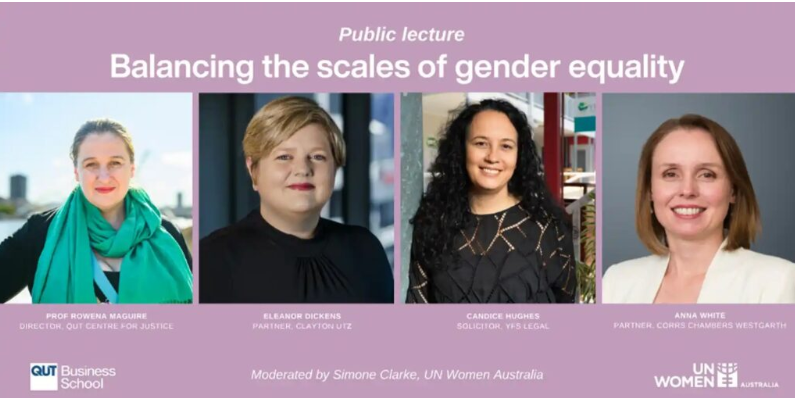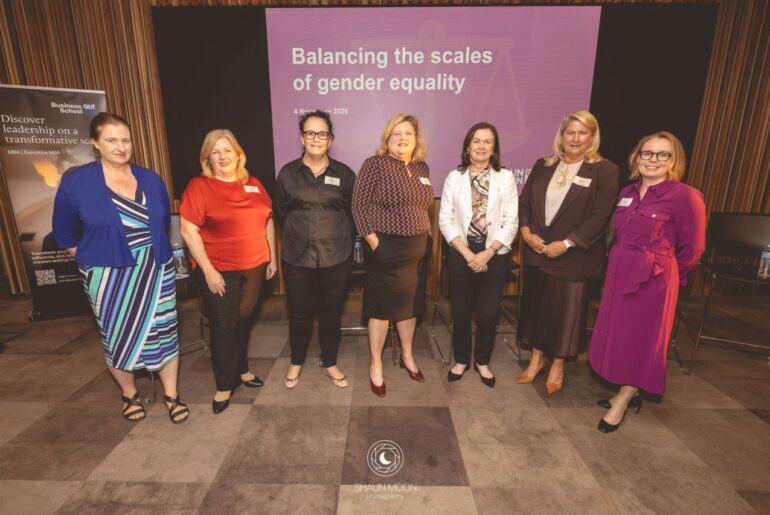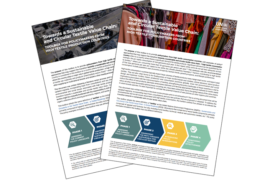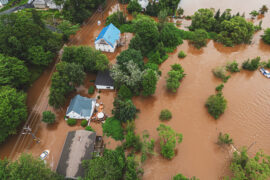
Globally, 3.9 billion women and girls face laws that limit their economic and legal rights, 1 in 3 experience physical or sexual violence, and women hold fewer than 40% of judicial positions worldwide.
In Australia, justice is still out of reach for many: sexual assault conviction rates sit at just 7%, and First Nations women are 34 times more likely to be hospitalised due to family violence.
QUT Business School and UN Women Australia hosted a panel discussion last week titled, “Balancing the scales of gender equality” to discuss how changemakers and legal experts are challenging global and local gender injustices—from restrictive laws and violence against women to inequality in the justice system—and championing the leadership of First Nations and Pacific women to create a fairer, safer world.
Professor Rowena Maguire, Director, QUT Centre for Justice was one of the panelists speaking on the climate impacts on women and girls.
The discussion focused on key themes of climate and access and justice, and the panel offered a powerful reminder that meaningful change starts with inclusive systems. Explored themes were how environmental law often sidelines Indigenous knowledge and lived experience, and how digital platforms and AI technologies can perpetuate gendered harm when diverse voices aren’t part of the design. The conversation highlighted the urgent need for reform that centres human rights, cultural safety, and long-term investment in community-led solutions.





Comments are closed.